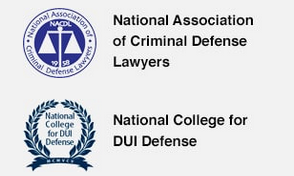Chain of Custody
Maricopa County Attorneys for Drug Crimes Defense
Chain of custody refers to the foundation a prosecutor needs to lay in order to get specific kinds of exhibits admitted into evidence. In drug crimes charges, chain of custody is crucial. Problems with the records and maintenance of evidence can give rise to significant defenses in drug crimes cases. Whether you suspect a chain of custody problem or not, you should discuss your situation with the effective Mesa drug crimes defense attorney James E. Novak. Mr. Novak is a former prosecutor who uses his insights about the procedure and substance of criminal charges to represent clients charged with drug possession, sales, and other crimes. He represents clients in Tempe, Scottsdale, Chandler, Gilbert, Phoenix, and across Maricopa County.
Chain of Custody
At trial, the prosecutor will need to establish that you committed a drug crime beyond a reasonable doubt. To do this, he or she will need to seek admission of key pieces of evidence, such as drugs and drug paraphernalia. Protocol must be followed when handling evidence in Mesa; the evidence must comply with rules of criminal procedure. If we take your case, we will examine the prosecutor’s evidence to determine whether there are possible grounds to make a motion to exclude the evidence.
Whether you’re charged with heroin or cocaine or methamphetamine, the drugs themselves are typically a critical piece of evidence. In order to prove that an exhibit is what a Tempe prosecutor says it is, the prosecutor will need show the “chain of custody.” That is, the prosecutor will need to prove who possessed the drugs or other exhibits from the point at which they are seized and the point at which they are introduced at trial.
Establishing Chain of Custody of Drugs in Mesa
The chain of custody can be established through a witnessed written record of every person who kept unbroken control over the items the government is using to establish its case. These records must show that what the evidence law enforcement officers gathered at the scene is the same evidence the government is presenting in court at trial. In the process of forensic testing, the substance may have been altered, which makes it especially important for the prosecutor to be able to show where the drugs were at every step and who controlled them.
There are circumstances in which it would be appropriate for our lawyers to attack evidence used to support one or more elements of the case against you. For example, to establish meth possession the prosecutor would need to prove beyond a reasonable doubt that you (1) knowingly, (2) possessed meth. Part of the prosecutor’s burden would be to show that the substance it seeks to admit was, in fact, meth. However, if the chain of custody for the meth was broken, it may not be reliable evidence. For example, perhaps the government can’t account for who had control of the meth when it was being transported to the forensic lab, or perhaps the lab didn’t maintain the meth in a secured facility after testing.
Maricopa County Lawyers for Witness Credibility
Chain of custody proves who had contact with the evidence, the date and time it was collected, the circumstances under which it was handled, and any changes made to it. Witnesses that handled the evidence may need to take the stand and establish where the drugs were found and how they were handled after seizure. Drug evidence may not be trustworthy if there are gaps in the chronology presented. If we cannot get the evidence in question dismissed by making a motion, we may be able to raise reasonable doubt during trial through cross-examination of the witnesses who handled the evidence.
Hire an Experienced Drug Crimes Defense Firm
When you hire an experienced Mesa criminal defense attorney, you give yourself the best possible chance of securing a dismissal, negotiating a plea for a lighter sentence, or winning at trial. James E. Novak represents those accused of drug crimes in Phoenix, as well as Gilbert, Chandler, and Maricopa County. Contact him at (480) 413-1499 or complete our online form.






















